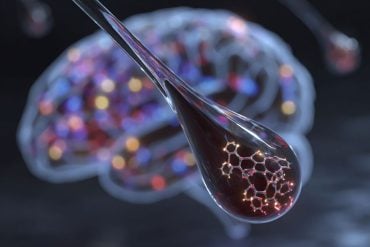Summary: Researchers advanced the capabilities of neural networks to make compositional generalizations, similar to how humans grasp and expand on new concepts.
This new technique, named Meta-learning for Compositionality (MLC), challenges decades-old skepticism about the capacity of artificial neural networks. MLC involves training the network through episodic learning to enhance its generalization skills.
Remarkably, in various tasks, MLC matched or even surpassed human performance.
Key Facts:
- The MLC technique focuses on episodic training of neural networks, allowing them to better generalize new concepts compositionally.
- In tasks involving novel word combinations, MLC performed on par with or superior to human participants.
- Despite its advancements, popular models like ChatGPT and GPT-4 have challenges with this kind of compositional generalization, but MLC might be a solution to enhance their capabilities.
Source: NYU
Humans have the ability to learn a new concept and then immediately use it to understand related uses of that concept—once children know how to “skip,” they understand what it means to “skip twice around the room” or “skip with your hands up.”
But are machines capable of this type of thinking? In the late 1980s, Jerry Fodor and Zenon Pylyshyn, philosophers and cognitive scientists, posited that artificial neural networks—the engines that drive artificial intelligence and machine learning— are not capable of making these connections, known as “compositional generalizations.”
However, in the decades since, scientists have been developing ways to instill this capacity in neural networks and related technologies, but with mixed success, thereby keeping alive this decades-old debate.
Researchers at New York University and Spain’s Pompeu Fabra University have now developed a technique—reported in the journal Nature—that advances the ability of these tools, such as ChatGPT, to make compositional generalizations.
This technique, Meta-learning for Compositionality (MLC), outperforms existing approaches and is on par with, and in some cases better than, human performance.
MLC centers on training neural networks—the engines driving ChatGPT and related technologies for speech recognition and natural language processing—to become better at compositional generalization through practice.
Developers of existing systems, including large language models, have hoped that compositional generalization will emerge from standard training methods, or have developed special-purpose architectures in order to achieve these abilities. MLC, in contrast, shows how explicitly practicing these skills allow these systems to unlock new powers, the authors note.
“For 35 years, researchers in cognitive science, artificial intelligence, linguistics, and philosophy have been debating whether neural networks can achieve human-like systematic generalization,” says Brenden Lake, an assistant professor in NYU’s Center for Data Science and Department of Psychology and one of the authors of the paper.
“We have shown, for the first time, that a generic neural network can mimic or exceed human systematic generalization in a head-to-head comparison.”
In exploring the possibility of bolstering compositional learning in neural networks, the researchers created MLC, a novel learning procedure in which a neural network is continuously updated to improve its skills over a series of episodes.
In an episode, MLC receives a new word and is asked to use it compositionally—for instance, to take the word “jump” and then create new word combinations, such as “jump twice” or “jump around right twice.” MLC then receives a new episode that features a different word, and so on, each time improving the network’s compositional skills.
To test the effectiveness of MLC, Lake, co-director of NYU’s Minds, Brains, and Machines Initiative, and Marco Baroni, a researcher at the Catalan Institute for Research and Advanced Studies and professor at the Department of Translation and Language Sciences of Pompeu Fabra University, conducted a series of experiments with human participants that were identical to the tasks performed by MLC.
In addition, rather than learn the meaning of actual words—terms humans would already know—they also had to learn the meaning of nonsensical terms (e.g., “zup” and “dax”) as defined by the researchers and know how to apply them in different ways.
MLC performed as well as the human participants—and, in some cases, better than its human counterparts. MLC and people also outperformed ChatGPT and GPT-4, which despite its striking general abilities, showed difficulties with this learning task.
“Large language models such as ChatGPT still struggle with compositional generalization, though they have gotten better in recent years,” observes Baroni, a member of Pompeu Fabra University’s Computational Linguistics and Linguistic Theory research group.
“But we think that MLC can further improve the compositional skills of large language models.”
About this artificial intelligence research news
Author: James Devitt
Source: NYU
Contact: James Devitt – NYU
Image: The image is credited to Neuroscience News
Original Research: Open access.
“Human-like systematic generalization through a meta-learning neural network” by Brenden Lake et al. Nature
Abstract
Human-like systematic generalization through a meta-learning neural network
The power of human language and thought arises from systematic compositionality—the algebraic ability to understand and produce novel combinations from known components.
Fodor and Pylyshyn famously argued that artificial neural networks lack this capacity and are therefore not viable models of the mind. Neural networks have advanced considerably in the years since, yet the systematicity challenge persists.
Here we successfully address Fodor and Pylyshyn’s challenge by providing evidence that neural networks can achieve human-like systematicity when optimized for their compositional skills.
To do so, we introduce the meta-learning for compositionality (MLC) approach for guiding training through a dynamic stream of compositional tasks. To compare humans and machines, we conducted human behavioural experiments using an instruction learning paradigm.
After considering seven different models, we found that, in contrast to perfectly systematic but rigid probabilistic symbolic models, and perfectly flexible but unsystematic neural networks, only MLC achieves both the systematicity and flexibility needed for human-like generalization. MLC also advances the compositional skills of machine learning systems in several systematic generalization benchmarks.
Our results show how a standard neural network architecture, optimized for its compositional skills, can mimic human systematic generalization in a head-to-head comparison.








